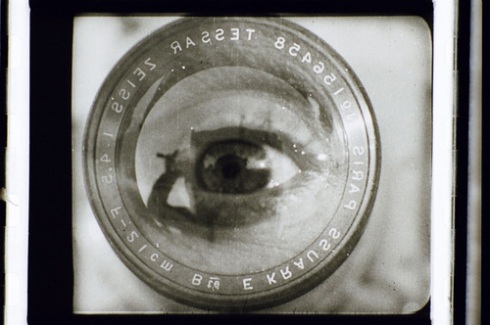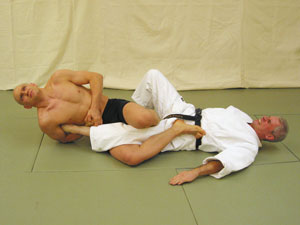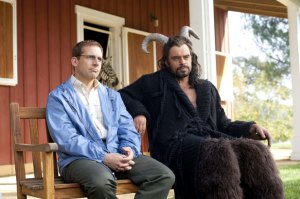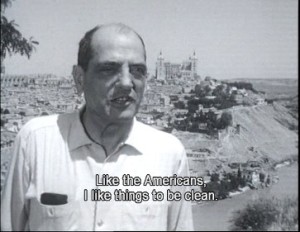Thirty some years after the scandal of L’Age d’Or, Luis Buñuel kicked convention in the teeth once again with Viridiana (1961). He’d spent the first few of those intervening years working as an executive producer for French studio films (with the stipulation that his name never appear in association with the finished product), and as an agent for Republican Spain during the disastrous Civil War. Later, he spent time as a bemused cine-tourist in the United States, dubbing Spanish language films and editing historical footage for the Museum of Modern Art. Rootless and semi-employed for years, desperate to find a means to support himself and his family, he finally settled in Mexico with the hopes of landing a job through connections with the Spanish exile community.
 Between 1930 and 1947, Buñuel directed only one film, the short documentary Las Hurdes or Terra Sans Pain (you can watch it here in French, no subtitles), in 1933. Then nothing as he scrambled to make a living as first Spain, then all of Europe convulsed in armed conflict. Mexico offered a refuge and the possibility of employment in the local film industry.
Between 1930 and 1947, Buñuel directed only one film, the short documentary Las Hurdes or Terra Sans Pain (you can watch it here in French, no subtitles), in 1933. Then nothing as he scrambled to make a living as first Spain, then all of Europe convulsed in armed conflict. Mexico offered a refuge and the possibility of employment in the local film industry.
Buñuel’s Mexican debut was, by his own admission, mediocre , but he soon found his groove. Working fast, with bare-bones budgets, shooting scenes in the order they were scripted to minimize editing time, he pounded out 18 films from 1949 to 1960. Despite the lack of resources, six of these films were official selections at Cannes, and three came away with prizes.
This surge of popular and critical success must have been on the minds of the government officials who invited the prodigal to return to the fatherland and make a movie in Franco’s Spain. I wonder if any of the fascist fuddy-duddies bothered to watch any of his films. Buñuel’s movies of the fifties, melodramas and adventure stories for the masses, nevertheless consistently undercut the authority of institutions like the church, the state, and the police. In addition, the director continued to imbue his commercial work with his own taste for disturbing imagery that ignored distinctions between interior and exterior reality. How officials in charge of a very effective state propaganda machine could miss these elements is a mystery to me.
Imagine yourself as a mid level toady in the Ministry of Culture of a devoutly Catholic dictatorship and read these three short plot summaries (spoiler alert!):

El (1953) – a paranoid husband torments his wife, convinced that she is unfaithful, eventually sewing up her vagina. You can watch the opening five minutes (or the entire film if you want to download the Veoh player). The film has barely started and already you have a bishop planting passionate kisses on altar boy feet while parishioners exchange lusty glances.
Ensayo de un Crimen (1955) – a wealthy man plans a series of murders, but each of his intended victims is killed by other means or he is interrupted before he can act. He menaces a nun with a straight razor (she dies falling down an empty elevator shaft); he prepares to strangle a woman but is interrupted when unexpected guests arrive and take a tour of his home; his betrothed, whom he intends to shoot on their wedding night, is instead shot to death by an ex-lover.
Nazarin (1959) – Padre Nazario, a Roman Cathoic priest, “walks the walk” of Jesus, living amongst the poor in a run-down hotel, attempting to influence the lives of those around him through charity and good works. But his interactions with people, undertaken with the best of intentions, tend to have chaotic results. The priest’s story parallels the life of Christ, only with absurd outcomes. In one scene, Nazario tries to help a dying woman but she ignores his attempts to administer last rites, calling out instead for her husband.
around him through charity and good works. But his interactions with people, undertaken with the best of intentions, tend to have chaotic results. The priest’s story parallels the life of Christ, only with absurd outcomes. In one scene, Nazario tries to help a dying woman but she ignores his attempts to administer last rites, calling out instead for her husband.
Despite a catalogue of films like these, Luis Buñuel was invited back to Spain to make a movie. Sixty years old, in total command of his medium after a decade of intense productivity, the director stepped back onto his native soil with the full support of Generalissimo Francisco Franco, Caudillo de España, por la gracia de Dios.
(contributed by Inti)


















